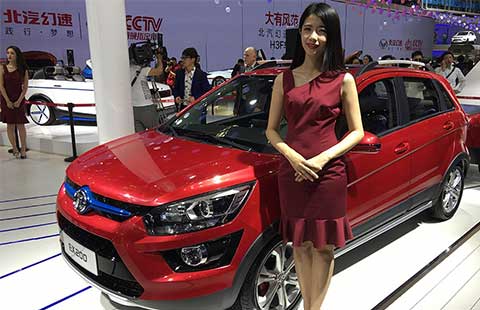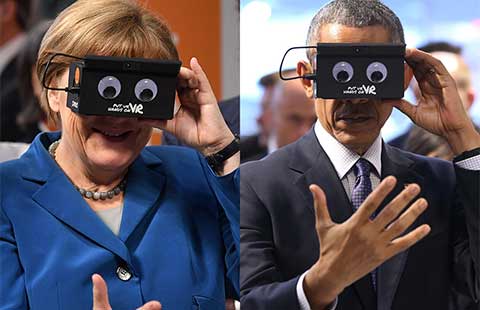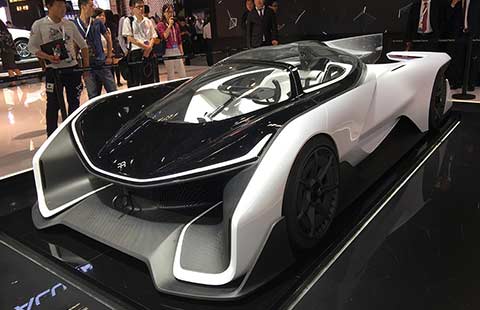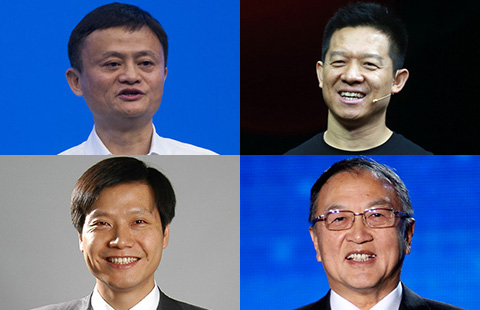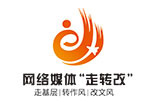Innovation boosts confidence of Chinese manufacturers in global competition
(Xinhua) Updated: 2016-04-27 10:13
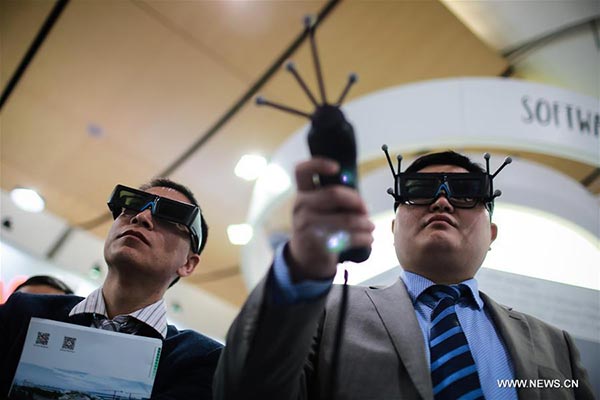 |
|
Fair-goers try virtual reality glasses at Huawei's stand of the Hanover Fair in 2016 in Hanover, Germany, on April 26, 2016. Some 700 exhibitors from China, the second only to the host country in terms of the number of exhibitors, attended the fair.[Photo/Xinhua] |
Some 5,200 exhibitors from 75 countries and regions are participating in the Hanover Fair this year, covering sectors such as digital factory, industrial automation and energy.
Chinese exhibitors can be seen in almost every exhibiting hall of the grounds. Leon He, president of Huawei's western Europe enterprises business unit, said over 10 percent of the company's total revenue is invested in research and development (R&D). In 2015, Huawei's innovation investment amounted to some $9 billion.
Jaten Robot, a Guangdong-based industrial robot producer, showed two automatic guided vehicles which could be used for material delivery on shop floors.
"Despite a subdued world economy, sales in our company continued its growth trend last year," said Huang Qiwen, a marketing specialist of the company.
She attributed the growth to her company's ability to meet factories' high demand for automation products. "We only have 400 employees in our company, but 90 of them are R&D staff," she said.
For Autoboty, another Chinese medium-sized enterprise specialized in automatic system, innovation has proved vital.
"Competition in the automation industry is getting more and more fierce in recent years, as the manufacturing sector is getting smarter and smarter," said Huo Jin Tian, general manager of the company.
According to him, one third of Autoboty's human resources are put into R&D efforts. The company is also cooperating with local universities and institutes in developing new technologies and products.
"In order to win the competition, you have to have sufficient technology support," Huo said.
- General practitioners to play bigger role in China's health system
- Innovation boosts confidence of Chinese manufacturers in global competition
- Overseas luxury consumption by Chinese down 24% in March
- China to revitalize northeast rustbelt
- China's newly installed wind power capacity grows 13% in Q1
- China's Q1 outbound M&A deal value exceeds all annual figures
- China SOEs profits fell 13.8% in Q1
- PE market's deal value jumps to $69b in 2015, says Bain & Co

